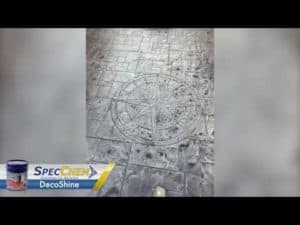153117 views 2201 likes 51 dislikes
Channel: LearnCoatings – Epoxy Flooring Training
Learn about our online course here
http://learncoatings.com/wordpress/learn-epoxy-floor-3/
http://www.learncoatings.com for our blog
http://www.ktisis.eu to learn about our epoxy flooring products
Epoxy and polyurethane (PU for short) floors are the two most commonly used types of resinous industrial floors. An age old question in our industry is what are the differences between the two types of floors? And when should we pick one over the other?
– Epoxy floors are harder, more durable and have a much higher compression strength than polyurethanes. This is why they are the preferred choice for heavy duty industries, warehouses and logistics centers with heavy forklift traffic.
– Polyurethane floors are usually softer and more elastic, which makes them more resistant to scratching as their elasticity tends to absorb some of the impact. The elasticity of PU floors also makes them a preferred choice in freezing chambers where the storage temperature can reach -30 degrees Celsius (-22 F). They are also a good choice for multideck car-parks since the elastic coating can act as a waterproofing and crack-bridging layer.
– Epoxies and polyurethanes behave differently when exposed to certain chemicals. For example polyurethanes are the preferred choice in food industries that have exposure to lactic acids. This the reason why many food processing companies that work in milk, dairy, cheese production choose polyurethanes.
– Epoxies under such conditions may experience corrosion and yellowing. However when working in industries with sulfuric acids (like battery manufacturing etc) epoxy floors are much more resistant than polyurethanes. If you are working in a facility with heavy exposure to chemicals, check with the manufacturer to see which product is better suited.
– Epoxy resins are also sensitive to moisture, but the damage done by humidity will be far more limited. Therefore when working in environments where the presence of humidity could be an issue, epoxy is always the much better choice.
– Polyurethane floors can be easily modified to extend or limit their pot life, re-coat time as well as the total curing time. This flexibility enables contractors to complete PU floors in a much shorter space of time .With PU you could effectively start a multicoat project on Friday and hand it over on Monday. Epoxy floors are much less flexible in this respect in the sense that they usually require 7 days to fully cure.
In general polyurethanes are harder to work with. Their limited pot life and sensitivity to humidity require very well trained and experienced staff. Personally I refuse to supply inexperienced teams with PU floor resins. Too many things can go wrong.
Finally if you are wondering which one of the two resins is cheaper, I do not really have an answer to that. There are quite a few varieties of products out there. Comparing epoxies to PUs is like comparing apples to oranges. Ultimately your choice of floor should not be based on which one of the two is cheaper, but which one of the two suits your needs.
This video is narrated by Akis Apostolopoulos. Akis has been involved in the manufacturing and application of industrial floor coatings for the past ten years. He runs learncoatings which is an online resource training professionals on the use of epoxy floors. He is also General Manager of Ktisis, a manufacturer of flooring and waterproofing coatings.
Video length: 10:52
Category: People & Blogs
261 comments
* This video was originally published here
Find a local concrete contractor in your area to help you with your concrete flooring needs by searching here on Concrete Floor Pros.
#concretefloorpros



